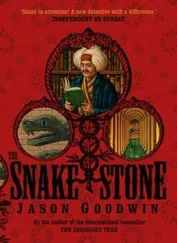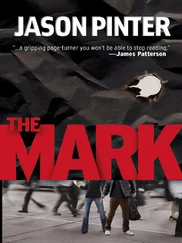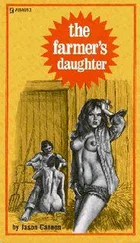As I was working through the age groups at Barking, I was continuing to be less than impressive at school. My rugby got better while my school work got worse and I left just before my sixteenth birthday, which was as early as I could. My parents tried to persuade me to stay at school and get qualifications that would help me later on, but at 15 I didn’t worry too much about ‘later on’ – I was only interested in the ‘here and now’. What really turned me on was rugby. By that stage I had decided that I wanted to play for England and never tired of telling people that one day I would.
My parents eventually gave up trying to persuade me to stay at school and I began training as a carpenter alongside my dad for the first six months of my working life. I remember on my first day in the job, the guy running the site said, ‘Look, son. I’ll give you fifty pence for each sheet of plaster-board you can carry up the stairs,’ because they needed materials to be taken to the top floor. They thought they were being very clever and that it would take me all day to shift them, so they’d only owe me a few quid at the end of it. Unfortunately for them, I was stronger than they’d given me credit for. I lifted a couple of the boards onto my shoulder and ran up the stairs, stuck at it all day and was quids in. In addition, I’d spent the whole day weight training, so I was happy.
I used to turn every occasion into a training session so that even walking the dog became serious exercise. On one occasion I took Sadie, our Staffordshire bull terrier, out with me. She loved going for walks but I don’t think she was quite prepared to be put through a training session. By the time I’d been jogging and sprinting round the track for hours, she was absolutely exhausted. I turned round to stretch off and she ran home as fast as she could. Dad says he was working in the garage when the dog came running in, whimpering, and hid under the work bench, cowering and hoping that I wouldn’t see her. She wouldn’t go out with me again!
I remember the kids that I’d been at school with saying, ‘Aren’t you worried about having no exam qualifications?’ and I’d say: ‘Why would I be? I’m working now – what do I need exams for?’ With hindsight, I realize that I should have worked harder at school, done the exams and kept my options open. However, I got a trade, so that was good, but I would rather have had the chance to go to college or university. Of course, if I’d done that I might not have broken into the England set-up quite so quickly because I just know that the appeal of the social system would have been too great for me, and they’d have probably taken me out of the students’ union in a body bag!
My first year in the U19s was fantastic because we won the Essex Cup for the first time ever. It was amazing – you’d have thought we’d won the World Cup from the reaction we got locally. We were playing Harlow, a strong side that had won for the previous five years – the equivalent of Manchester United maybe playing Charlton. We beat them against all the odds and the clubhouse was turned into a party venue for the night – I don’t think I made it home for the best part of a week.
The clubhouse at Barking Rugby Club was a fairly basic place in those days. It was a real old shack, with men’s and women’s toilets – but no one distinguished between them, and men would walk out of both. The walls inside were painted light green, so it didn’t matter a bit if anyone was sick or threw beer all over them. There was no carpet – just plastic lino on the floor – so that every morning they would simply sweep out through the front door everything that had been deposited the night before. I always pitied the poor guy who had that job.
In addition to the main bar, there was also a little snug which was tiny and was members only – I don’t think anyone under the age of 80 ever went in there, but those guys were some of the funniest I’ve ever met. There were two old fellows down there who reminded me of Statler & Waldorf – the grumpy puppets on The Muppets who start the programme off every week on a balcony. I always laugh when I go in there now, and even though Barking has acquired a new clubhouse, they’re still sitting there in the snug. I’m not sure that they ever move. They look about 80, but then they looked about 80 when I was a kid. I always go in and say, ‘Ain’t you dead yet? I’m sure I sent flowers to your funeral. Are you sure you’re not dead? They’re not digging you up and propping you up against the bar are they?’
Just after I’d played in the Colts’ memorable and much-celebrated victory over Harlow, I got my break in the senior team because they were a prop short and they thought I might want to play. I was warned that I was under age and uninsured, but that the captain and coaches all believed that I could handle the step up in intensity. I jumped at the chance and when they warned me about how tough adult props could be, I told them not to worry, I’d be OK.
We played Braintree in that match – my first adult game – and coaches from Barking stood at the touchline, worried to death about what might happen to me. They knew that they’d be shot if I got into trouble or if the RFU found out that I was being played under age. When the first scrum went down they must have been hoping and praying that I’d come out in one piece. They were all staring, waiting to see how I’d cope when the front rows first came into contact, but five seconds later all their fears were allayed as the prop opposite me shot up into the air – I’d lifted him right off the ground. They all relaxed then and enjoyed the rest of the game and a few pints. I loved playing at that level and went back to play senior rugby as soon as I could, but first I had to finish the season with the Colts because I was their captain.
We had a new boy in the Colts side, a lad called Glyn Llewellyn, whom our coach, Lawrence Consiglio, had spotted. Glyn had been watching us play East London because he was at East London Poly at the time and fancied watching a match. When Lawrence saw this 6′6″ bloke with a Welsh accent standing there he rushed over and asked him if he fancied playing. Glyn said that he did and we began the process of signing him up to the club. The problem was that before you could play for Barking in those days, you had to go for a formal interview with members of the committee, so Glyn went along and sat before a few committee men who asked him about his rugby. ‘I’ve played for Neath and Welsh Schools,’ he said. One of the committee men couldn’t believe it and kept nudging the one next to him and saying, ‘Sign him up, sign him up.’ But the others continued with their routine. ‘And do you have any social references?’ Social references? Can you believe it – social references? This was Barking Rugby Club, for God’s sake. Give him a shirt before he gets away.
Glyn eventually managed to provide them with the references they required and took his place in the team. He was a No.8 at the time and was absolutely brilliant. He took the place apart and used to scare the life out of the opposition because Welsh rugby was a lot tougher than anything played in England at the time. We didn’t have any touch judges in Colts games so you couldn’t get sent off unless you were seen by the referee. Glyn would make maximum use of this and, knowing the referee couldn’t see everything, would blatantly punch his opposite number in the first line-out and say, ‘That’s how we play in Wales.’ Glyn and I have stayed good mates over the years and his first cap for Wales coincided with my first Five Nations game in 1991.
Both Glyn and I were recognized by selectors in the regional and area set-up, and began moving slowly through the system that would result in me running out for England and Glyn for Wales. The first stage was Essex trials, which didn’t seem particularly difficult to me since I’d been playing a tough level of rugby since I was 17. After that it was to Eastern Counties, where I started to feel challenged and realized that I was now at a higher level. But I still felt as though I had the upper hand in the scrums and knew my way around the park. I was fit, streetwise and willing to try anything.
Читать дальше











